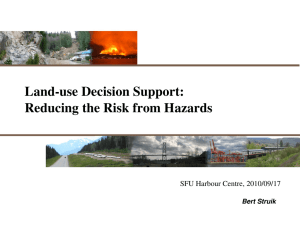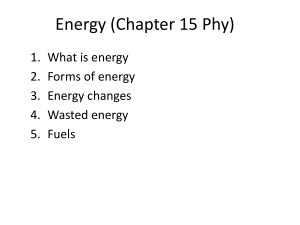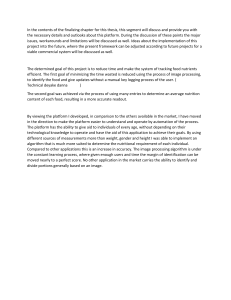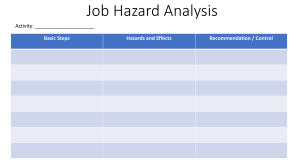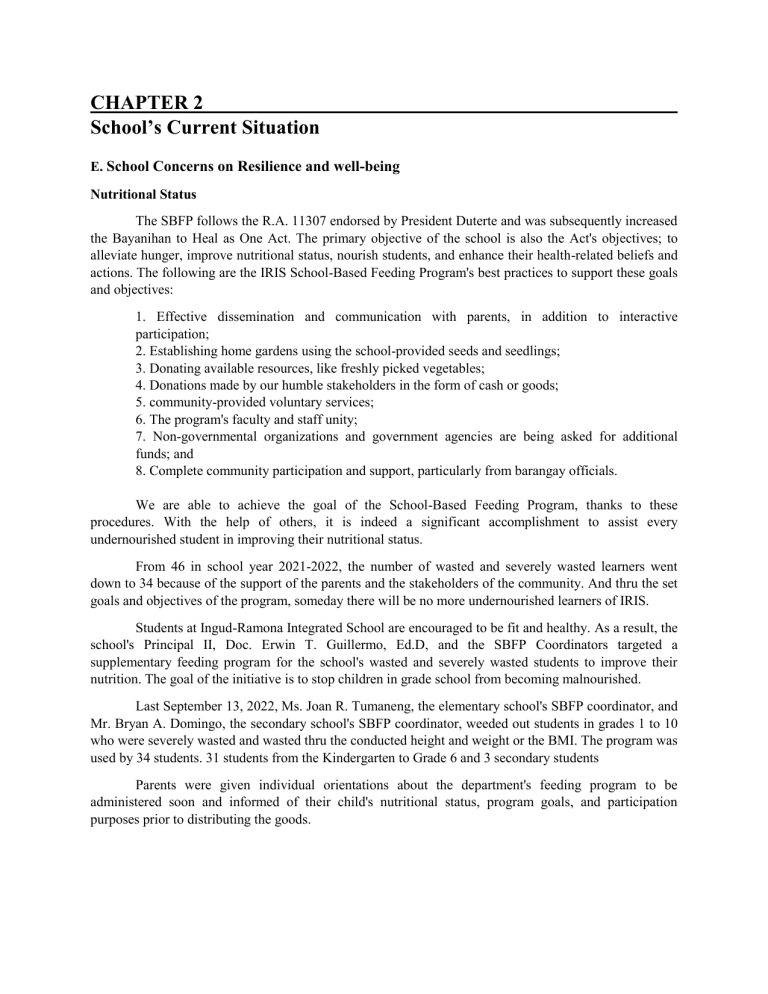
CHAPTER 2 School’s Current Situation E. School Concerns on Resilience and well-being Nutritional Status The SBFP follows the R.A. 11307 endorsed by President Duterte and was subsequently increased the Bayanihan to Heal as One Act. The primary objective of the school is also the Act's objectives; to alleviate hunger, improve nutritional status, nourish students, and enhance their health-related beliefs and actions. The following are the IRIS School-Based Feeding Program's best practices to support these goals and objectives: 1. Effective dissemination and communication with parents, in addition to interactive participation; 2. Establishing home gardens using the school-provided seeds and seedlings; 3. Donating available resources, like freshly picked vegetables; 4. Donations made by our humble stakeholders in the form of cash or goods; 5. community-provided voluntary services; 6. The program's faculty and staff unity; 7. Non-governmental organizations and government agencies are being asked for additional funds; and 8. Complete community participation and support, particularly from barangay officials. We are able to achieve the goal of the School-Based Feeding Program, thanks to these procedures. With the help of others, it is indeed a significant accomplishment to assist every undernourished student in improving their nutritional status. From 46 in school year 2021-2022, the number of wasted and severely wasted learners went down to 34 because of the support of the parents and the stakeholders of the community. And thru the set goals and objectives of the program, someday there will be no more undernourished learners of IRIS. Students at Ingud-Ramona Integrated School are encouraged to be fit and healthy. As a result, the school's Principal II, Doc. Erwin T. Guillermo, Ed.D, and the SBFP Coordinators targeted a supplementary feeding program for the school's wasted and severely wasted students to improve their nutrition. The goal of the initiative is to stop children in grade school from becoming malnourished. Last September 13, 2022, Ms. Joan R. Tumaneng, the elementary school's SBFP coordinator, and Mr. Bryan A. Domingo, the secondary school's SBFP coordinator, weeded out students in grades 1 to 10 who were severely wasted and wasted thru the conducted height and weight or the BMI. The program was used by 34 students. 31 students from the Kindergarten to Grade 6 and 3 secondary students Parents were given individual orientations about the department's feeding program to be administered soon and informed of their child's nutritional status, program goals, and participation purposes prior to distributing the goods. Safety and Security (School Hazards) One of the most important methods for addressing the vulnerability of students both inside and outside the classroom is to establish disaster preparedness, mitigation, and prevention. It is essential to raise children's awareness of the effects of climate change and their abilities to prepare for and handle potential disasters and/or emergencies. Because the students could share and apply their lessons at home, this is also intended to influence family preparedness. Our students, who are frequently categorized as one of the vulnerable groups, ought to be provided with the capacity to comprehend, apply, and know safety and protection mechanisms in order to establish the foundation of their resilience. To start this technique, upgrading their mindfulness on the dangers and conceivable gamble inside the school is basic. Engaging students in disaster preparedness and management begins with the student-led school watch and hazard mapping. This activity will make students more aware of hazards and provide them with the knowledge and abilities they need to deal with their effects. Ingud-Ramona Integrated School provides our students with the opportunity to comprehend their role in the School Disaster Risk Reduction and Management (SDRRM) through this activity. Objectives: • Increase students' awareness of the risks and hazards that may exist within and around the school. • Reduce vulnerabilities to increase student participation in disaster preparedness; • Promote a sense of security among students throughout the school's day-to-day activities In accordance with our goal, the IRISDRRM Team headed by Mrs. Maria Bella T. Bayang, elementary school’s coordinator and Mr. Marlon M. Tumaneng, secondary school’s coordinator, together with the IRIS-School’s Child Emergency Resilience Team (SCERT) gathered for a Hazard Mapping Activity orientation. The IRIS-SCERT is made up of various student organizations like: SPG and SSG, Red Cross Youth, the YES-O, the Kid and Young lady Scouts and other dynamic gatherings in the school. The group proceeded to map out potential dangers on the campus after a brief briefing. They went from room to room to see if the classrooms were safe and if there were any obstacles or extraneous items that could harm their classmates. They also checked to see if each room contained an emergency kit or a go bag. The team also inspected the ground and found out that the hazards in the school premises are the following: Excess arm-chairs in the corridors and in the Multi-purpose hall; Sharp rocks; Slippery floors when raining; Open wires; Sharp objects like branches of trees and the metal barrier from the school gate; Broken sealing in front of the grade 6 classroom; Broken windows; and Broken doors from the comfort rooms. Typhoons where once again disturbing the students excitement to learn. There are reported four typhoons and two earthquakes that once again took many lives in the country in just few months since the opening of the school year 2022-2023. The group gathered after these Disasters to talk about what had happened and complete their tasks. The IRISDRRM Team looked at the pupils' reports and did an eye exam in the area. Luckily, the province of Isabela was not affected by these disasters thus, classes where only suspended and no building from our school was reportedly damaged. There are also zero casualties ever recorded from these disasters from our school. We’re trying to make our pupils, teachers, and staff safe; we keep on conducting drills on the proper dealing with any kind of calamity and hazards that may occur. Our purpose is to save lives. Thus, Ingud-Ramona Integrated School was upholding the quote “Ligtas ang may Alam, dapat Red Allert!”
